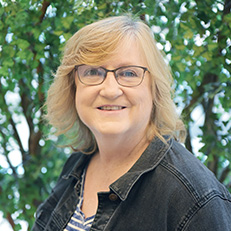It’s understandable why people use it so often. After all, who doesn’t want to love and be loved?
But do we really know what it is to love, to truly love, the way the Bible teaches us to love?
Depending on the version of the Bible you use, there are over 600 references to love, and there are 30 instances that speak of God’s specific call for us to love others.
To me, the most impactful verse about love is John 15:12: “My command is this: Love each other as I have loved you.”
Let those words sink in: “Love each other as I have loved you.”
These are the words of Jesus Christ talking to his disciples, telling them to love in the same way that he has loved them. That is no simple undertaking and not one to be taken lightly.
How is it possible to love others like God the Father does?
One thing I know for sure is that we can expect to fall short, but this is what we are called to do. It’s what God created us to do. So, in an attempt to better understand how to love as God’s son Jesus did, I want to explore how Jesus loved.
Christ showed his love to his disciples and others in countless ways, but a few things about Jesus’ love struck me as I took a closer look.
1 | JESUS LOVED ORDINARY, MESSY PEOPLE
When Jesus set about to select his disciples, his choices were very intentional. He didn’t choose any of them because they were flashy, popular, or even particularly worthy of his love. In fact, they were simple men—mostly fishermen.
Matthew was a dishonest tax collector—perhaps a man of considerable wealth, but not one who was highly regarded by others.
And then there is Judas. Think about that for a minute.
Jesus knew all things; he knew what the future held. How could he, with all his foreknowledge, willingly and purposefully align himself with a person he knew would ultimately betray him and lead to his death?
What did he see in any of these men that caused him to bring them into his inner circle?=
Clearly, he looked beyond their circumstances and saw into their hearts.
Living in community with the disciples allowed Jesus to lead by example—teaching, encouraging, and preparing them for what was to come.
He consciously decided that these common, messy men would be his disciples—the ones he would love deeply, disciple, and ultimately send into the world to start the Church.
When he had finished washing their feet, he put on his clothes and returned to his place.
“Do you understand what I have done for you?” he asked them.
“You call me ‘Teacher’ and ‘Lord,’ and rightly so, for that is what I am.
Now that I, your Lord and Teacher, have washed your feet, you also should wash one another’s feet.” | John 13:12-14
By this everyone will know that you are my disciples, if you love one another. | John 13:35
Jesus got called out for spending time with tax collectors, prostitutes, sinners, and outcasts. He had a way of looking beyond stereotypes to see hurting people who needed a Savior.
By reaching out to people whom many considered beyond redemption, Jesus was creating the model for the church. Each of us—regardless of who we are or what we’ve done—needs the redemptive love of Jesus.
Jesus said to them, “It is not the healthy who need a doctor, but the sick. I have not come to call the righteous, but sinners.” | Mark 2:17
As we live, it’s easy to love the lovely—to care for people who care for us and make our lives better by being around them.
It is also one of the hardest things to love people who make our lives difficult or uncomfortable. You know them—the ones we feel some soft prompting from God to befriend but who rub us the wrong way and make us want to run away.
I don’t think God expects us to have warm feelings for these people on our own, but he calls us to love them.
Jesus had the benefit of being able to look into the disciples’ hearts, which we clearly do not. But even just realizing that we don’t know people’s whole story is a step toward not being so quick to judge.
Sometimes love is a decision.
It’s a decision we should make for the right reasons—to show the love of Christ while remembering that we’re all messy, need redemption, and need love.
Choosing love isn’t easy. That’s why prayer is so important.
Suggested prayer: Jesus, help me see others as you see them, and help me to be willing to love those you call me to love.
2 | JESUS’ LOVE CHANGES PEOPLE
The love of Jesus changes people. However, it doesn’t happen overnight or by accident.
Jesus loved his disciples, so he invested time in nurturing the relationships he had with them. These men gave up everything they had to follow Jesus. And living in community together, their lives were forever changed by Christ’s love for them.
A big part of loving others as Jesus loved is surrounding ourselves with other believers. The disciples spent time with Jesus and with each other, supporting and encouraging each other—kind of like the original Life Group.
We were created to function better when in community.
When we have a shared faith in Jesus Christ, we develop loving friendships and are called to hold each other to a higher standard.
As these friendships grow, we earn the right to speak into each other’s life—and to hold each other accountable—by establishing a basis of love. This love comes with the knowledge that we want for the other person what God wants for them.
Let us hold unswervingly to the hope we profess, for he who promised is faithful. And let us consider how we may spur one another on toward love and good deeds, not giving up meeting together, as some are in the habit of doing, but encouraging one another—and all the more as you see the Day approaching. | Hebrews 10:23-25
Prayer suggestion: Jesus, help me to seek relationships that will bring me closer to you.
3 | LOVING EACH OTHER = FOLLOWING JESUS ON MISSION
Jesus invested time with his disciples, knowing they would lead the church after he was gone.
He trusted them to carry his love and his message to all generations.
Christ understood that these men were still messy and flawed, but he expected that his love would carry them to fulfill the mission he left with them.
Even as believers, it’s natural to deal with fear and doubt. At the crucifixion of Christ, we see Peter deny knowing Jesus repeatedly—three times, to be exact. After the resurrection, Jesus sought to restore Peter, and in John 21, we see Jesus asking Peter if he loves him—again, not by accident, three times.
The third time he said to him, “Simon son of John, do you love me?” Peter was hurt because Jesus asked him the third time, “Do you love me?” He said, “Lord, you know all things; you know that I love you.” Jesus said, “Feed my sheep.” | John 21:17
In this exchange, Jesus is reaffirming his love for Peter—even in the aftermath of his display of doubt—but letting Peter know that loving him comes with expectations.
If you love Jesus, you will “feed his sheep.” If we truly want to “love each other as Jesus has loved us,” maybe we first need to realize that this love is the mission. If we have been loved by God and changed by God, we are called to share his love with others. The mission is literally in our hands.
“Therefore go and make disciples of all nations, baptizing them in the name of the Father and of the Son and of the Holy Spirit, and teaching them to obey everything I have commanded you. And surely I am with you always, to the very end of the age.”
Prayer suggestion: Jesus, teach me to allow your love to flow through me as I love others and seek to be on mission with you. | Matthew 28:19-20
Prayer suggestion: Jesus, teach me to allow your love to flow through me as I love others and seek to be on mission with you.
Ready to experience God’s love? We’d love for you to attend a service with us!

AUTHOR CREDITS

Publications Specialist

GRAPHIC CREDITS

Digital Marketing Manager



